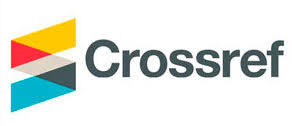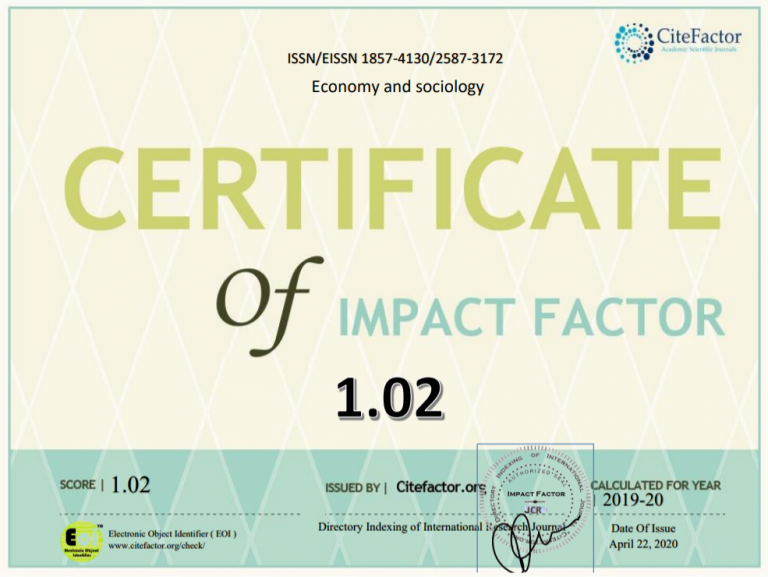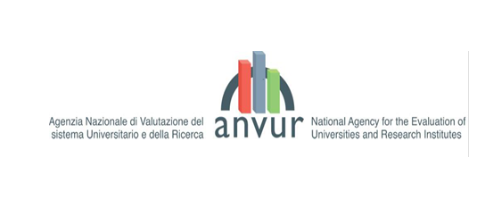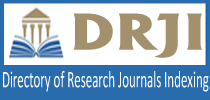A TRANSNATIONAL EXCHANGE MECHANISM AMONG MOLDOVAN MIGRANTS IN THE PARISIAN REGION: EXPLORING THE “POST OFFICE OF MOLDOVA”
DOI:
https://doi.org/10.36004/nier.es.2023.1-01Keywords:
material circulation, migration, reciprocity, social exchange, parcels, transnational networks, MoldovaAbstract
This article delves into the phenomenon of material goods circulation in the context of international migration, specifically looking at the exchange of parcels between Moldovan immigrants in the Paris region, France, and their kin, friends, and acquaintances in Moldova. The analysis uses field data collected during an ethnographic study conducted in 2017 within the Moldovan immigrant community in Paris. It moves beyond the limitations of push-pull theories that focus solely on one-way material circulation from immigrants to their home country families or only on the economic implications of remittances.
Adopting a diverse methodological and epistemological stance, the author's inductive approach highlights the heuristic value of the field data. This data suggests that the parcel exchange between Moldovan immigrants and their compatriots carries significant social and symbolic meaning for all actors involved in this process. Over time, this exchange has evolved into a social institution, creating an ongoing link between the host country and the country of origin. The author scrutinizes the material and symbolic processes involved in the parcel transfer mechanism, whimsically referred to by the migrants as "Post Office of Moldova", the name of the national postal service in Moldova. The article explores both the commercial and non-commercial dynamics that shape this mechanism's operations and its integrative impact on the Moldovan immigrant community in the Paris region. The motivations that drive these material flows associated with migration are portrayed in terms of reciprocity, redistribution, and altruism, thereby emphasizing the reciprocal nature of these exchanges.
Downloads
References
Benarrosh-Orsoni, N. (2016). Phones, Small Talk and Disputes. Transnational Communications and Community Cohesion among Roma Migrants in the Outskirts of Paris. Revue européenne des migrations internationals, 32 (1), 147-163. https://doi.org/10.4000/remi.7698
Caracentev, S. (2020). The Gift of connectedness: Re-stitching the transnational relational web. Chapter III. In Parcel vans and the materiality of staying connected in Moldovan transnational families [Doctoral thesis]. London: University College London, 110-133. https://discovery.ucl.ac.uk/id/eprint/10094687/1/Final_thesis_SCaracentev.pdf
Caracentev, S. (2022). Migratia. In D. Roșca & L. Cotovanu. Republica Moldova: 30 de ani în 30 de cuvinte (pp. 294-309). Chișinău: Cartier.
Central Intelligence Agency (CIA). (2018). The World Factbook. https://www.cia.gov/the-world-factbook/
Centru de analize și investigații sociologice, politologice și psihologice (CIVIS). (2010). Consolidarea legăturii dintre migraţie şi dezvoltare în Moldova. http://civis.md/Archive/CIVIS_IASCI_BM_Migratie%20si%20dezvoltare_prezentare.pdf
Cheianu-Andrei, D. (2013). Cartografierea diasporei moldovenești în Italia, Portugalia, Franța și Regatul Unit al Marii Britanii. https://brd.gov.md/sites/default/files/document/attachments/01_cartografierea_diasporei_moldovenesti_in_4_tari_ue_rom.pdf
Diminescu, D. (2008). The connected migrant: an epistemological manifesto. Social Science Information, 47(4), 565-579. https://doi.org/10.1177/0539018408096447
El Miri, M. (2011). Quand les migrants se choisissent: Qualification sociale et selection des postulants à la migration au Maroc. European Journal of Sociology, 52(2), 209-235. https://doi.org/10.1017/S0003975611000099
Gagauz, O. (2023). Recalcularea numărului populației Republicii Moldova, 2004-2014. Chişinău. https://doi.org/10.36004/nier.2023.978-9975-147-86-6
Institutul de politici publice (IPP). (2000). Barometrul opiniei publice, 2000. http://ipp.md/old/lib.php?l=ro&idc=156&year=2000
Luecke, M., Mahmoud, T.O., & Pinger, P. (2007). Patterns and Trends of Migration and Remittances in Moldova. Chișinău: International Organization for Migration.
Luecke, M., & Stoehr T. (2012). The effects of migration in Moldova and Georgia on children and elderly left behind. Europe Aid Project: DCI-MIGR/210/229-604, Country Report: Moldova.
Malinowski, B. (1922). Les Argonautes du Pacifique occidental. Paris: Gallimard.
Massey, D. S., Arango, J., Hugo, G., Kouaouci, A., Pellegrino, A., & Taylor, J. E. (1993). Theories of International Migration: A Review and Appraisal. Population and Development Review, 19(3), 431-466. https://doi.org/10.2307/2938462
Mauss, M. (2007). Essai sur le don. Forme et raison de l'échange dans les sociétés archaïques. https://doi.org/10.4000/lectures.520
Pathirage, J., & Collyer, M. (2011). Capitalizing social networks: Sri Lankan migration to Italy. Ethnography, 12(3), 315-333. http://www.jstor.org/stable/24048141
Peraldi, M. (2016). Le «commerce migratoire» euroméditerranéen. Politique étrangère, 35-46. https://doi.org/10.3917/pe.164.0035
Polanyi, K. (2011). La Subsistance de l’Homme. La place de l’économie dans l'histoire et la société. Traduit de l'anglais et présenté par Bernard Chavance, Flammarion. ISBN 9782081229105.
Portes, A. (1999). La mondialisation par le bas. L'émergence des communautés transnationales. Actes de la recherche en sciences sociales, 129, pp. 15-25, https://www.persee.fr/doc/arss_0335-5322_1999_num_129_1_3300
Portes, A., & Böröcz, J. (1989). Contemporary Immigration: Theoretical Perspectives on its Determinants and Modes of Incorporation. International Migration Review, 23(3), 606-630. https://doi.org/10.1177/019791838902300311
Portes, A., & Guarzino, L. E. (1991). Tropical Capitalists: U.S.-Bound Immigration and Small Enterprise Development in the Dominican Republic. In Diaz-Briquets, S., Weintraub, S. (Eds.), Migration, remittances, and small business development: Mexico and caribbean basin countries (1st ed.). https://doi.org/10.4324/9780429046506
Potot, S. (2003). Circulation et réseaux de migrants roumains: Une contribution à l’étude des nouvelles mobilités en Europe [thesis]. Nice: Université de Nice-Sophia Antipolis. https://theses.hal.science/tel-00003480
Rosca, D. (2018). Importanța și modul de funcționare a solidarităților private în cadrul emigrației moldovenești. Anchetă în regiunea pariziană. In Диаспоры в современном мире: региональный контекст и потенциал для устойчивого развития страны происхождения = Diaspora în lumea modernă: contextul regional și potenţialul pentru o dezvoltare durabilă a ţărilor de origine = Diasporas in Modern World: Regional Context and Potential for Sustainable Development of the Country of Origin: conferința științifică internațională, 21 decembrie 2017, (pp. 375-388). Chișinău: International Organization for Migration. https://moldova.iom.int/sites/g/files/tmzbdl1626/files/documents/Diasporas%2520in%2520the%2520Modern%2520World_Regional%2520Context%2520and%2520Potential%2520for%2520Development%2520.pdf
Roşca, D. (2019). Le Grand Tournant de la société moldave: «Intellectuels» et capital social dans la transformation post-socialiste. Paris: Presses de l’Inalco. https://doi.org/10.4000/books.pressesinalco.19771
Sayad, A. (1999). La double absence. Des illusions de l'émigré aux souffrances de l'immigré. Paris: Seuil.
Sayad, A. (2014). L’immigration ou les paradoxes de l’altérité. Tome 3: La fabrication des identités culturelles. Cours et travaux. Paris: Raisons d'agir. http://iris.ehess.fr/index.php?2470
Sayad, A. (1986). "Coûts" et "profits" de l'immigration. Actes de la recherche en sciences sociales, 61, 79-82. https://www.persee.fr/doc/arss_0335-5322_1986_num_61_1_2308
Schiller, N. G., Basch, L., & Blanc, C. S. (1995). From Immigrant to Transmigrant: Theorizing Transnational Migration. Anthropological Quarterly, 68(1), 48-63. https://eportfolios.macaulay.cuny.edu/lutton15/files/2015/02/Theorizing-Transnational-Migration.pdf
Stöhr, T. (2013). Intra-Family Migration Decisions and Elderly Left Behind. Working Papers. No. 1858. Germany: Kiel Institute for the World Economy https://brd.gov.md/sites/default/files/document/attachments/decizia_intrafamiliala_de_emigrare_si_virstncii_ramasi_singuri_analiza_rm_eng.pdf.
Tabac, T. (2021). Migrația populației. In: Gagauz, O. (coord.), Populația Republicii Moldova la 30 de ani de independență: provocări principale și politici necesare (pp. 97-120). Chişinău: INCE, CCD. http://dspace.ince.md/xmlui/bitstream/handle/123456789/1459/Popula%c8%9bia_Republicii_Moldova_la_30_de_ani_de_independent.pdf?sequence=3&isAllowed=y
Tabac, T., & Gagauz, O. (2020). Migration from Moldova: Trajectories and Implications for the Country of Origin. In: Denisenko, M., Strozza, S., Light, M. (Eds.), Migration from the Newly Independent States. Societies and Political Orders in Transition (pp. 143-168). Cham: Springer. https://doi.org/10.1007/978-3-030-36075-7_7
Tarrius, A. (2002). La mondialisation par le bas. Les nouveaux nomades de l’économie souterraine. Paris: Balland.
Vaculovschi, D. (2023). Labor migration and the phenomenon of transnational families from the Republic of Moldova. Eastern European Journal for Regional Studies (EEJRS), 9(1), 153-162. ISSN 2537-6179. https://doi.org/10.53486/2537-6179.9-1.12
Weber, S. (2013). Espaces et passeurs de changement au Moyen-Orient: le transnational au-delà des impasses du nationalisme. EchoGéo, 25. https://doi.org/10.4000/echogeo.13566
Weiner, A. B. (1992). Inalienable Possessions. The Paradox of Keeping-While-Giving. E-Book. Berkeley: University of California Press. Retrieved from https://www.perlego.com/book/552439/inalienable-possessions-pdf
World Bank Open Data. (n.d.). World Bank Open Data. https://data.worldbank.org/country/moldova
World Bank. (2011). Moldova after the Global Crisis. Promoting Competitiveness and Shared Growth: Poverty Reduction and Economic Management Unit Europe and Central Asia Region. Report: No. 55195-MD. https://documents1.worldbank.org/curated/en/291951468054585656/pdf/551950ESW0p1090sclosed0Dec013020110.pdf
Zwager (de), N., & Sințov, R. (2014). Inovație în migrația circulară. Migrație și dezvoltare în Moldova: studiu de piață. Chişinău: Elan Poligraf. http://civis.md/Archive/IASCI-CIVIS%20Migratie%20si%20desvoltare%20in%20Moldova%20studiu%20de%20piata%202014.pdf















